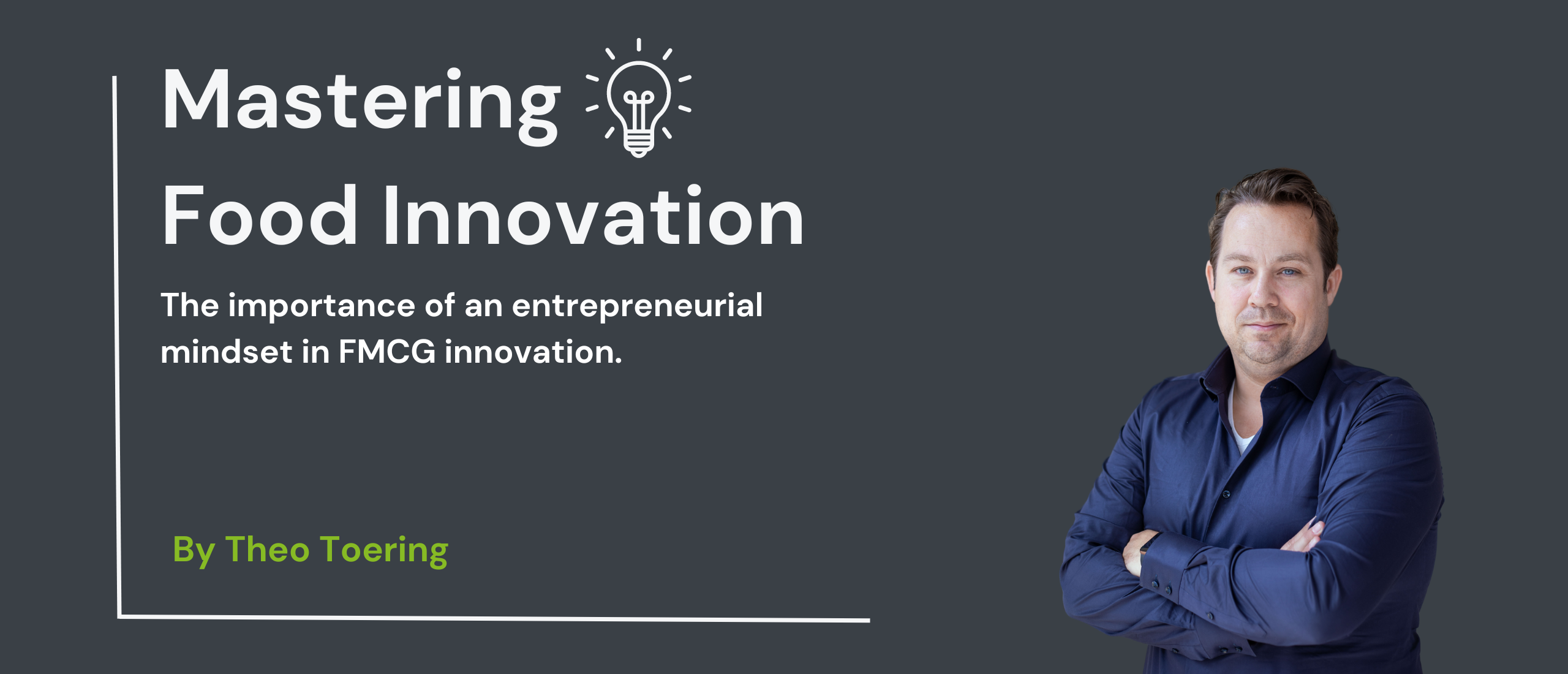Every FMCG innovation is a startup. You develop something new that you think the market needs. During development, you work with colleagues from different departments on a project that involves a lot of time, energy and talent. You constantly have to make small adjustments. Sometimes due to feedback from the target group, sometimes because you just have to. But the best (and most critical) moment is when your innovation hits the shelves. Unfortunately, however, like most startups, it turns out that most FMCG innovations fail. To avoid this, having the right mindset is essential. What the right ‘FMCG innovation mindset’ is, you can read in this newsletter.
Make the consumer your obsession
As soon as you start an innovation project, you immediately say goodbye to one thing: the ability to see your innovation as a consumer. Even if you are a category buyer yourself, you will never be able to see your innovation through the eyes of the consumer. Unlike your target audience, you are much more intensely engaged with the concept and see things your target audience does not and vice versa. This is also often the case with the founders of startups. Because they are so busy with their company, their vision is coloured. This is perfectly normal, but it becomes dangerous if you think consumer feedback is unnecessary. Consumer feedback during an innovation journey is never without risk. Constantly gauging how your target audience reacts to your concept will significantly increase the success rate. So my advice is: throughout the entire innovation process - from concept to post-launch - keep the consumer at the centre. Talk to consumers, observe their behaviour, ask for their feedback, but also: keep testing whether consumers would buy your innovation.
FMCG innovation is a journey of constant concessions
When I was still working as a marketer in our great industry, I was responsible for a large innovation project. With a team of driven and talented colleagues, we had given the concept a lot of thought. The concept was great: consumers were excited, retailers were excited, and especially we ourselves were excited. But when we started developing the product, we soon found out that the original concept was not going to be the final product. We had to make so many adjustments and concessions that there wasn't really much left of the original concept. For instance, we had to increase the price due to sudden increases in raw material costs. Another example came from our legal department: a claim we had put on the packaging did not quite comply with European legislation after all. These concessions ended up having a major (negative) impact on our innovation. I believe there is little we can do to change such forced concessions. Therefore, it is important to embrace these concessions and accept that they are part of the innovation journey. By taking this into account, you can better avoid major adverse consequences.
Making mistakes is allowed, but learning is required
Michael Jordan, the greatest basketball player of all time, once said: ‘’I've missed more than 9,000 shots in my career. I've lost almost 300 games. I've failed over and over and over again in my life. And that is why I succeed.‘’ There is no quote that describes so well what is needed within the FMCG sector when it comes to innovation. Better innovation starts with the realisation and acceptance that not every FMCG innovation is going to be a success. Like any startup, an innovation project always faces certain risks. It is therefore important to create a culture that encourages rapid ‘failure’ and then learning from it. Setting concrete hypotheses, which you can then test, helps with this. If you are considering introducing smaller packaging for your product, you can set a concrete hypothesis for this. For example: I expect smaller packaging to result in 25% more sales per week. After you have drawn up this concrete hypothesis, you can then test it in ‘the real world’ to see if your hypothesis is correct. Is your hypothesis correct? Great, then you can build on it. Is your hypothesis not correct? Also great, because then you can take this valuable lesson with you! The FMCG innovation journey is always uncertain, so it is important that you and your team become comfortable with making mistakes. Setting up concrete hypotheses and micro-experiments for each issue can help you tremendously in this regard!
Test your FMCG innovation in our network of 400+ supermarkets across Europe
Do you currently have an issue you would like to test or research in the supermarket? With Bamboo Brands, we help FMCG brands test products, mockups and packaging in real supermarkets across Europe. Contact me at theo@bamboobrands.com We are happy to help!






